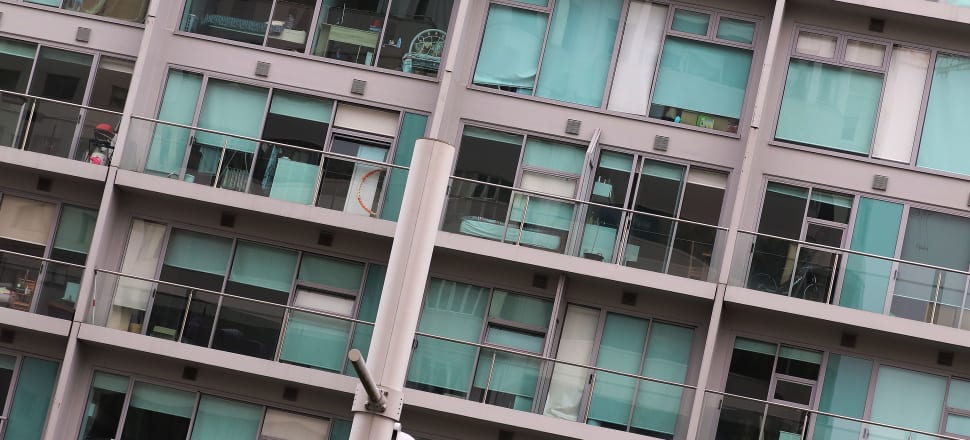My response to ‘News Room’ – ‘the Lefties who want less housing’

My thanks to News Room Editor Tim Murphy for publishing this letter with an apology.
Dear Editor,
For some reason, even though I have been out of Auckland politics for just on a year and have never been involved in Wellington local politics, in an article about Wellington’s Spatial Plan I find I am the target of a quite gratuitous attack in Newsroom ’s ‘the Lefties who want less housing’ by Dileepa Fonseka. While Mr Fonseka is free to stereotype me as a ‘Lefty’ and refer to me as “progressive” [the inverted commas signalling his sarcasm], he is wrong and out of order in suggesting that I “want” or I have ever wanted, “less housing”. And as for being “strongly against the Unitary Plan” I don’t know where Dileepa Fonseka was when Auckland Council signed off its Unitary Plan in August 2016, but a more careful journalist would have checked the minutes (readily available online:
https://infocouncil.aucklandcouncil.govt.nz/Open/2016/08/GB_20160810_MIN_6662_WEB.HTM)
These cover the extended three-day meeting in which that massive, complex document, amalgamating and updating numerous legacy regional and district plans, was signed off, clause-by-clause, to see for himself how I voted in the many divisions that took place. Instead he has relied (and not for the first time) on an ill-informed source who evidently bears some sort of personal animus. Most importantly given the subject of his article, housing, Dileepa Fonseka, had he bothered to inquire, would have discovered that I argued and voted, along with the former mayor of Auckland Len Brown and other centre-left councillors, for a mandatory quota for developers to provide affordable housing. Unfortunately this provision, part of the council’s draft Unitary Plan was strongly opposed by the NZ Property Council and was removed by the government appointed ‘Independent Panel’. Our attempt to restore it unfortunately narrowly failed, but interestingly without a murmur of protest from the pro-development cheer squad which barracked for every deregulatory measure.
Concurrently. with the finalisation of the Unitary Plan, Auckland Council also dealt with multiple intensive housing development proposals under Nick Smith’s fast-track HASHA legislation. Of the dozens of Special Housing Areas (SHAs) that were pushed through I recall voting against only three of them. This on the grounds that the proposed SHA would mean the destruction of heritage buildings, or because of their negative environmental and cultural impacts. One such was Fletcher’s Special Housing Area at Ihumatao. Interestingly opposition to this particular SHA has now become a national cause célèbre. As well as voting for a plethora of SHAs I also voted funds for building more accommodation for the homeless at the James Liston Centre and at the City Mission and I campaigned for a night shelter.
I didn’t ask to be involved in the Wellington Spatial Plan debate but now that I have been, I will point out that while the property industry can be expected to oppose any regulatory restraint on its activities, its allied political echo chamber appears to be framing this important debate just as in Auckland, and just has Mr Fonseka has done; by attempting to belittle and marginalise anyone raising concerns relating to sustainability and carrying capacity.
As it happens I was born and grew up in inner city Wellington, Hopper Street, something that was not especially common in the 1950s and 60s. I am sure there is room for more intensive residential development in Wellington but those raising questions about the wisdom of open-slather high-rise in an area prone to earthquakes and without fit-for-purpose sewage disposal infrastructure should be listened to, as should those concerned to safeguard what’s left of the inner-city’s historic buildings, (which Dileepa Fonseka disdainfully refers to as ‘heritage’ – in inverted commas), without being the target of woke-ish sneers.
In this historic ‘hinge year’ 2020, in which the global Covid-19 pandemic has raised fundamental questions about globalism, policies of high population growth, urban overcrowding and consequent ongoing infrastructure deficits, housing shortages and social inequality, those raising reasonable concerns in such an important debate should not be shouted down, personally attacked or have their motives unfairly mischaracterised in the unthinking rush for yet more deregulation for private profit. Especially by the news media.
Mike Lee
former chairman Auckland Regional Council, former Auckland Councillor



